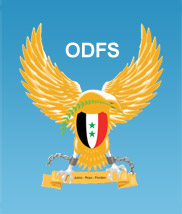Ribal Al-Assad calls on the Syrian regime to improve quality of life for ordinary people and move towards democracy
Thursday, 20 January 2011
The unrest in North Africa has focused the world’s attention on an underlying cause of discontent in the region; that for many ordinary people, life remains so very hard.
The political events that have unfolded in Tunisia serve as a stark warning to other regimes that providing a good standard of living should be a top priority.
In Syria, where life for ordinary Syrians is difficult, the patience of the people seems limitless. I have worked hard in London to raise awareness of the harsh political realities that my countrymen endure. My team and I hold regular meetings with Members of Parliaments to discuss issues such as censorship, arbitrary arrest and the suppression of democratic freedoms. In light of recent events, I thought I would turn my attention to look at the quality of living in Syria.
I’m afraid it is not a pleasant picture. High food prices, corruption, a lack of personal freedom and a troubled economy all combine to make life for ordinary people a daily struggle. A rising budget deficit, water shortages, declining oil production and rising unemployment all conspire to create a society that is held back by both a lack of social development at the bottom and a concerted effort from the top to reduce political and economic freedoms.
The Legatum Institute, a London-based think-tank that looks at global prosperity and development, ranks Syria as 83rd in the world for quality of life in its highly regarded Global Prosperity Index. The Institute ranks Syria as:
- 71st in the world for economic freedoms
- 79th for good governance
- 92nd for entrepreneurship and opportunity, and
- 99th for personal freedoms
Regionally, Syria ranks behind many other Arab countries.
The Institute concludes that:
“Syria’s economy displays weak foundations for growth....A poor ICT infrastructure and high start-up costs hinder entrepreneurship and innovation….Syria’s government is autocratic, placing heavy restrictions on citizens’ political rights….Syria does not allow its citizens to exercise the freedom of expression, belief, association, and personal autonomy.”
Transparency International rank Syria as 125th in the world in its respected Corruptions Perception Index 2010, which measures perceptions of corruption in public life. It gives my home country a score of 2.5 out of 10 and placing it behind countries such as Mongolia, Kosovo, and Bolivia.
These are huge and vital issues for the Syrian regime to address. The basic needs of the people must be a priority. While we must all choose our words carefully, and would never wish to see the levels of public unrest that Tunisia has endured, it is worth noting that British media commentary of the North African situation is beginning to ask whether there will be a domino effect on other regimes. The flagship current affairs programme, Newsnight, featured such a discussion last week, and Syria and Iran were openly discussed as candidates for popular discontent.
I would urge the Syrian regime to do all in its power to ease suffering, promote social development, liberalise its economy and set itself on a path towards democracy.
Ribal Al-Assad
Founder & Director, The Organisation for Democracy and Freedom in Syria
More news articles
